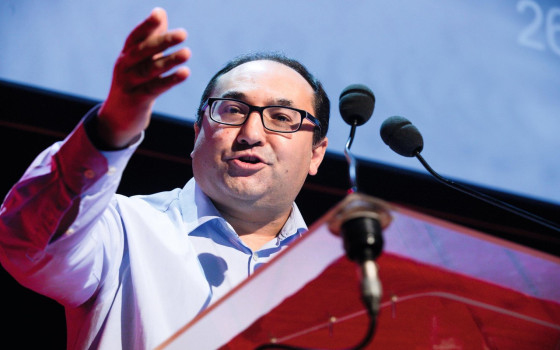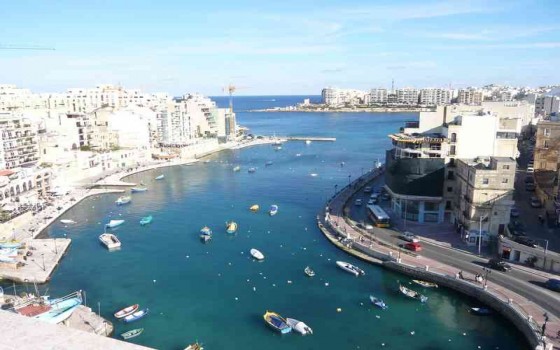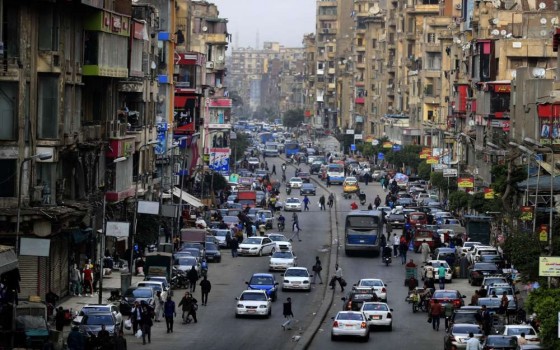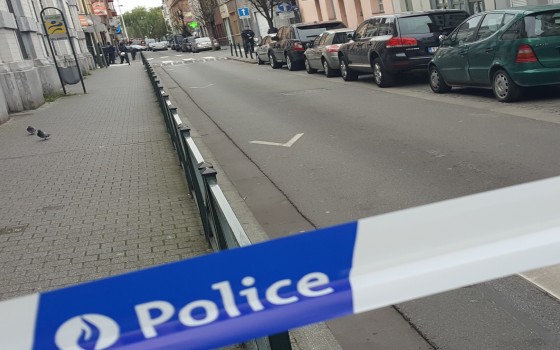andidates of Arab origin in the Belgian elections...on the list of those who received the most votes from voters...The King began his consultations with party leaders immediately after the results were announced

- Europe and Arabs
- Tuesday , 11 June 2024 14:39 PM GMT
Brussels: Europe and the Arabs
King Philippe continues his consultations today at the Royal Palace in Brussels with leaders of various parties to listen to perceptions regarding possible scenarios following the elections in order to form a government coalition in the country. The King began consultations yesterday, Monday, hours after the results were announced, and it began with the current Prime Minister, Alexander De Cruz, who His party lost heavily in the elections. The King also met with the Speaker of the House of Representatives, the President of the Senate, and the leaders of the major parties that obtained a number of seats that qualified them to participate in a government coalition, whether at the federal level or regional governments. The elections were known for loud surprises regarding the representatives who obtained a large number of votes. Votes: Arab candidates had a noticeable presence in the lists of those who received the most votes, whether at the level of elections for the Belgian Parliament or the Regional Parliament in the Brussels-Capital region, or the French-speaking Walloon region, as well as the Dutch-speaking Flemish region. For example, the numbers showed that Ahmed Laouj is the most popular politician in Brussels. Three politicians from the Socialist Party, the Liberal Movement, and the Progressive Labor Party received the largest number of votes in the Brussels region. Ahmed Laouj (PS) came in first place with 24,978 votes, ahead of Liberal David Lister (20,315 votes). They are followed by two delegates from the PTB, Françoise de Smet (16,737) and Suleiman Al-Muqaddam (14,861). Foreign Affairs Minister Hajja Habib completed the top five with 11,751 votes.
The Greens came in ninth and tenth place, with Zakia Khattabi (Ekolo) receiving 8,381 votes, and Brussels Minister of Mobility Elke van den Brandt (Green), respectively, with 8,361 votes. Christophe de Bocquelier's Les Engagés received 7,925 votes to come in eleventh place. Fouad Haider came in fourteenth place, obtaining 7,602 votes.
Bart de Wever is still the most popular politician in Flanders. The N-VA president received 255,446 votes, far more than the No. 2 at the federal level: his party colleague Theo Franken. CD&V's Annalize FairLondon completed the top three at the federal level, with 65,307 votes. Also striking: Green Party leader Petra De Sutter overtook Prime Minister Alexander De Croo with 64,160 votes, while the Prime Minister received 60,738 preferential votes.
Top 5 in the European Parliament elections in Belgium:
1. Sophie Wilmès (MR): 543,821 votes. She previously held the position of Minister of Foreign Affairs and then Prime Minister.
2. Tom Vandendreich from the far-right (Vlaams Belang): 307,189
3. Johan van Overtveldt (Flemish Alliance) 205792
4. Elio di Robo (for the Walloon Socialists): 181.797
5. Waterpick from the Humanist Democratic Party (CD&V): 140,694
The far-right "Vlaams Plane" in Belgium (the opposition) achieved a remarkable victory in the elections that took place on Sunday and gained 20 seats. The Flemish Alliance Party (the opposition) also maintained its position as the largest party in terms of the number of seats in Parliament with 24 seats, and it is the party that calls for the secession of the part. Flamani represents the country and all options are on the table to achieve a government coalition despite the difference in party programs, but there is an agreement among the Belgian parties not to cooperate with the extreme right in forming the government.
The Francophone Liberal Party won 21 seats, the Walloon Socialist Party won 16 seats, the Flemish left-wing Labor Party won 14 seats, and the Flemish “On the Move” party won 13 seats, an increase of four seats. The Human Democratic Party won 11 seats and lost one seat, and the Flemish Greens won. It won 6 seats and lost two seats, while the Prime Minister's Party lost seven seats and retained only five. Therefore, the possibility of maintaining the current coalition known as the "Vivaldi coalition" could maintain the necessary majority of more than 75 seats, which is half the number of seats in Parliament.
On Sunday, Belgian Prime Minister Alexander De Croo announced his resignation after the defeat of his party, the Flemish Liberals and Democrats, in the European elections.
In a speech to his supporters, Alexander De Croo congratulated "the winners of these elections, Vlaams Belange (far-right) and Vooruit (socialists). And our friends from the revolutionary movement in French-speaking Belgium."
De Croo added: "For us, it was a very difficult evening. We lost. Tomorrow, I will resign from my position as Prime Minister."
Despite the defeat, De Croo expressed confidence in his party's steadfastness, saying: "But the Liberals are strong, and we will come back."
In Belgium, it is customary for the prime minister to resign after the elections, to make it easier for the king to hold consultations to form a new government. However, the Prime Minister should retain his interim position.
This announcement comes amid political reassessments in Belgium, as the resignation signals the beginning of negotiations and discussions to formulate a new political direction for the country. Observers believe that the Belgian tradition will continue with the possibility that the negotiations will continue for a long period, and thus De Croo could continue in his position for a period that may exceed a year due to the difficulty of the negotiating process.














No Comments Found